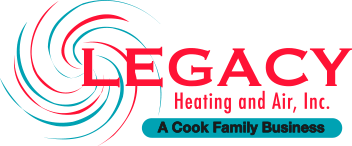What The Inflation Reduction Act Means For Indiana Homeowners
It can be hard to understand what the federal government’s new clean energy policies mean for homeowners locally. We’re simplifying the fine print so you can take action to reduce your energy use and maximize the benefits.
By now you’ve probably heard about the Biden Administration’s Inflation Reduction Act of 2022 (IRA). If not, allow us to summarize. It’s a piece of federal legislation aimed at curbing inflation via a $2.2 trillion dollar investment into social, infrastructural, and environmental programs.
One of the loftier aims of the IRA is to fight the effects of climate change. By pledging $369 billion toward promoting cleaner energy, the IRA’s goal is to reduce greenhouse gas emissions by 40% over the next decade. The provisions laid out in the IRA include tax credits and rebate programs enticing homeowners to make the swap to clean energy appliances, building upgrades, and systems.
So, what does this all mean if you’re a homeowner interested in reducing your carbon footprint? Now is the time to make those energy-efficient upgrades.
How Can Local Homeowners Benefit?
There is a lot to unpack regarding the energy initiatives laid out in the act-the bulk of which are rooted in the US tax code and reimbursed through various rebate programs. Essentially, the IRA’s energy initiative lays out two tax credits and two rebate programs local homeowners can participate in.
We’ll save you a call to your accountant (for now) and help you identify ways you can take part in federal incentive programs.
The Energy Efficient Home Improvement Tax Credit
Through the Energy Efficient Home Improvement Credit, homeowners can now claim 30% or up to $1200 of the costs of all eligible home improvements annually. Where previously homeowners could claim a one-time $500 maximum.
Beginning January 1, 2023, through the end of 2032, homeowners can make upgrades that take a big bite out of their carbon footprint and get a tax credit for doing so. Covered under this credit are weatherization and HVAC upgrades:
- $600 for exterior windows
- Up to $500 for exterior doors
- $600 water heaters, furnaces, and central air conditioners
- $150 for home energy audits
- $2000 for electric heat pumps and heat pump water heaters (this credit does not count toward the $1200 annual limit)
Because there is no lifetime cap on these funds, you can qualify for the $1200 each year allowing you to make incremental improvements to your home.
Residential Clean Energy Credit
The Residential Clean Energy Credit offers a 30% credit for renewable energy projects-like installing solar panels on your roof or switching to geothermal heat pumps. The credit covers 30% of the cost and installation of:
- Solar panels
- Geothermal heat pumps
- Solar water heaters
- Storage batteries
Rebate Programs
While tax breaks are helpful and may be enough incentive for some, they may not put home upgrades within reach for many families, which is why two new rebate programs have been established under the IRA.
Keep in mind that these programs are not active yet but are expected to be in 2023. It’s also important to note that these programs are run at the state level with each state receiving allocated funding.
HOMES Rebate Program
The Home Owner Managing Energy Savings Rebate Program (HOMES) rewards homeowners with cash back in their pockets for reducing their overall home energy use. Everyone qualifies for the HOMES rebate. However, depending on household income and projected energy savings, you could receive between $4000-$8000 for winterization and home heating and cooling projects.
HEEHRA Rebate Program
The High-Efficient Electric Home Rebate Act offers as much as $14,000 per year in point-of-sale discounts for electric appliances for low-middle-income households. This program defines low-middle-income families as those earning 80-150% of their area’s median income.
While the IRA does not allow for combining HOMES and HEEHRA rebates, it doesn’t exclude the use of state or utility rebates.
Some of the projects you can consider under the HEEHRA program include:
- $8000 for heat pumps
- $840 for electric stoves
- $1750 for water heaters
- $2500 for electric wiring
- $1600 for insulation, air sealing, and ventilation
For the most reliable information on these and other clean energy initiatives outlined under the IRA, visit this page and for continued updates, there is an email sign-up.
How Can Legacy Help?
The Inflation Reduction Act is making it more cost-effective than ever for millions of American homeowners to curb their energy use through HVAC upgrades. The team of Pros at Legacy are highly trained and ready to walk you through any of the following projects:
- Heat Pumps
- High-Efficiency HVAC systems
- Water Heaters
- Geothermal Technology
Your Next Steps
Still unsure where to start and how to qualify?
- Consider starting this process with a home energy audit with a trusted local expert to help determine where you can make improvements in your own home. (Remember to save your receipt because under the IRA you may qualify for a $150 tax credit for this step.)
- Get educated on the programs, how to qualify, and understand how to document and submit for each benefit. You may choose to work with your accountant or tax adviser on this step. (Please note that specific instructions may not be available for the rebate portion since they have not been rolled out at the state level.)
- Work with your trusted, local HVAC provider on qualified upgrades. A trained, trusted technician will be able to walk you through the upgrade process and help you make smart choices for your budget and your home.
Call on the Pros at Legacy to help walk you through the upgrade process. Schedule an appointment online or give our office a call to learn about your options, make a plan, and take action.

